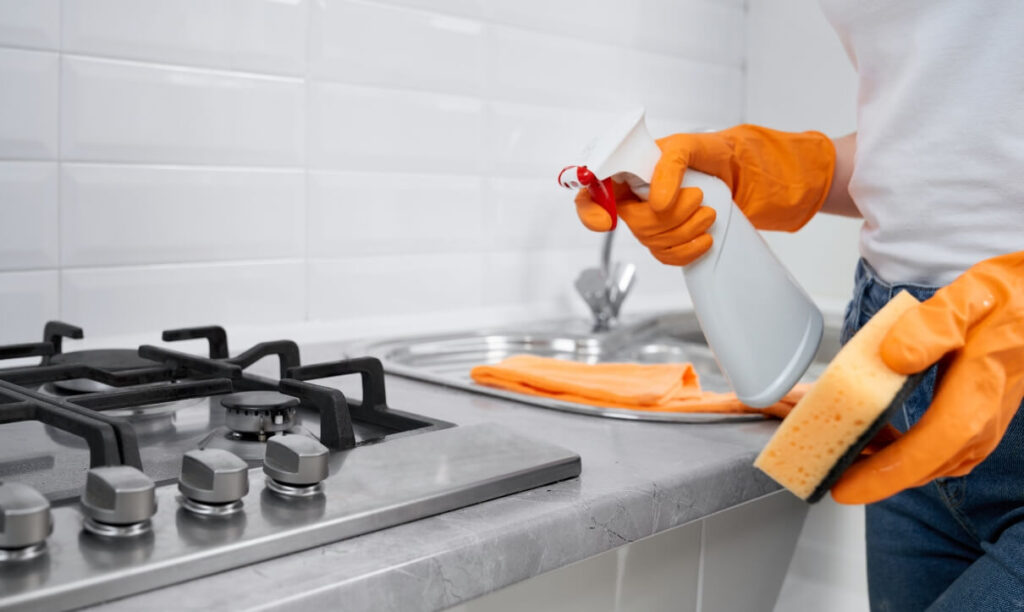
A well-maintained kitchen isn’t just visually appealing—it’s a cornerstone of a productive cooking experience. Properly caring for your kitchen tools and appliances extends their life, enhances performance, and makes meal preparation more enjoyable and efficient.
In this guide, we’ll explore tried-and-true strategies for keeping your kitchen essentials in peak condition, ensuring a smooth and satisfying cooking journey.
The Impact of Maintenance on Cooking Efficiency
It didn’t take long for me to realize how maintaining my kitchen tools revolutionized my cooking. Sharp knives, clean appliances, and well-cared-for cookware made every step, from chopping to plating, more efficient and enjoyable.
Rather than frequently replacing items, I found that consistent care not only saved money but also transformed my kitchen into a highly functional workspace.
Tips for Caring for Cutting Tools
Maintaining Knife Sharpness
Keeping knives sharp is not just about convenience; it’s also about safety and precision.
- Honing vs. Sharpening: Many confuse honing with sharpening. Honing aligns the blade’s edge and should be done regularly, while sharpening, which involves grinding the blade, is less frequent but equally essential.
- Safe Storage: Transitioning from tossing knives into a drawer to storing them in a knife block or on a magnetic strip reduced dull edges and accidental nicks.
Caring for Kitchen Shears
Kitchen shears often go unnoticed but are indispensable tools. Here’s how to keep them functional:
- Disassemble for Thorough Cleaning: Taking the shears apart ensures food particles don’t accumulate in hard-to-reach areas.
- Oil the Joint: Applying a drop of food-safe oil to the pivot prevents wear and ensures smooth operation.

Best Practices for Small Appliance Maintenance
Simplifying Blender Cleaning
Cleaning a blender can feel tedious, but this hack makes it effortless: fill the jar halfway with warm water and a drop of dish soap, then blend for 30 seconds. This routine eliminates residue, leaving the blender spotless and ready for the next use.
Keeping Coffee Makers Efficient
As an avid coffee drinker, I’ve discovered these tips to keep coffee makers performing at their best:
- Combat Mineral Build-Up: Running a vinegar-water cycle every few weeks prevents hard water deposits.
- Clean the Filter Basket Regularly: Cleaning the basket after every use ensures consistently great-tasting coffee.
Prolonging the Life of Large Kitchen Appliances
Maintaining Your Oven
A little regular care goes a long way with ovens:
- Weekly Wipe-Downs: A quick clean of the interior prevents grease buildup.
- Handling Stubborn Stains: A paste made of baking soda and water works wonders on baked-on spills, eliminating the need for harsh chemicals.
Keeping Your Refrigerator Organized and Efficient
An organized fridge doesn’t just reduce waste—it streamlines meal prep:
- Transparent Containers: Using clear containers helps you keep track of leftovers and ingredients.
- Monthly Deep Cleans: Set aside time to empty the fridge, wash shelves with warm soapy water, and vacuum the coils to maintain efficiency.
Caring for Cast Iron Cookware
Building a Reliable Seasoning Routine
For years, I avoided cast iron, thinking it required too much care. However, adopting a simple routine—rinsing, drying, and applying a thin layer of oil after each use—made my pan a versatile and reliable kitchen tool.
Restoring Rusted Cast Iron
When rust appeared after accidentally leaving my pan in water, I restored it using a mix of salt and oil with gentle scrubbing, bringing it back to its original condition.
Overcoming Common Kitchen Maintenance Challenges
Dealing with Greasy Pans
Heating white vinegar in a greasy pan before scrubbing makes removing tough residue a breeze.
Extending Appliance Longevity
Following manufacturer guidelines and cleaning attachments immediately after use prevents wear and avoids costly repairs.
Staying Consistent with Cleaning Habits
Adopting a “clean-as-you-go” approach was a game-changer for me. It turned what once felt like a chore into a manageable and rewarding routine.